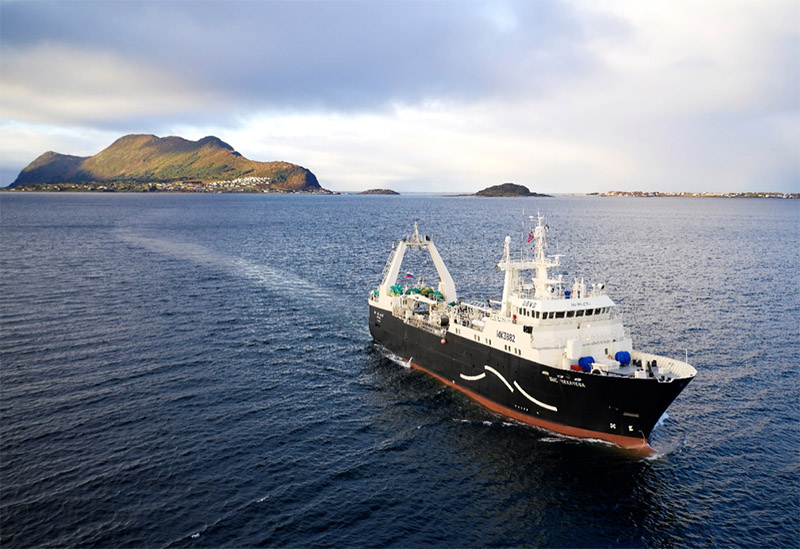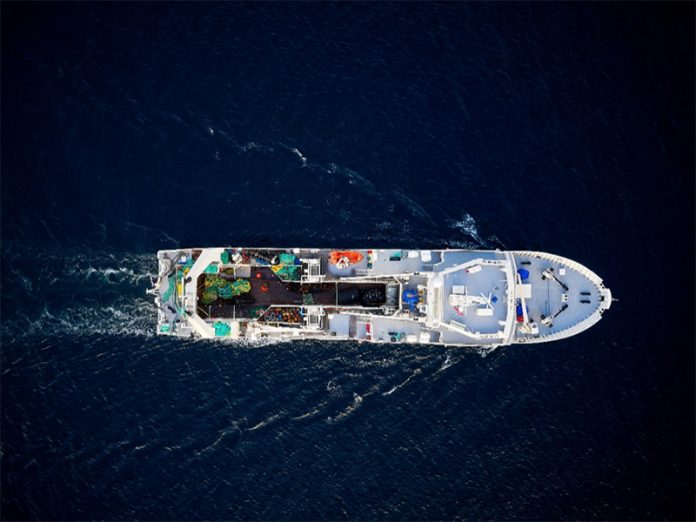Russia’s biggest fishing companies, some of the main suppliers for global food retailers, have received strong backing from leading conservationists for their efforts to protect the marine environment – a key priority for Russia, which attaches strategic importance to the sustainability of its fishing industry.
The World Wild Fund for Nature, WWF, confirmed in July that Norebo Group, JVC Archangelsk Trawl Fleet, the FEST Group and the Fishing Industry Union of the North (the largest association of small and medium-sized fishing companies in Russia) registered a high level of compliance with an agreement they signed last year to restrict bottom trawling footprint in the Barents Sea. The Russian parties’ involvement in the project, which came into force in August 2020, is seen as an unprecedented step towards the development of sustainable fisheries in the Arctic.
The Barents Sea bottom trawling project, backed by WWF-Russia (the Russian arm of the organisation) and the Marine Stewardship Council, limits fishing activity in three areas with endangered marine habitats – which include ‘underwater forests’ of sponges and corals. The restrictions cover more than 14,000 square nautical miles, about 30 per cent of Barents regions trawled for cod and haddock. An independent monitoring organisation, Morinfo, confirmed that over the course of the second half of 2020 fishing vessels bypassed the designated areas, with only one violation.
Aleksey Golenkevich, coordinator of sustainable fisheries projects at WWF-Russia’s Barents office, said the results of the independent monitoring confirmed the seriousness of the fishermen’s desire to develop a sustainable fishery for cod and haddock in the Barents Sea. “We can confidently say that Russian fishermen are leading this process and are setting [a] positive example for fishing companies in other countries that also conduct bottom trawl fishing,” he said.
Russia’s growing cooperation with the WWF was further underlined in December when the Russian Federal Fishing Agency signed a five-year agreement to safeguard marine resources and habitats. Part of the collaboration will involve WWF-Russia supplying the Russian regulatory body with the technical support needed to establish the boundaries of fishery protected areas. The creation of such a network was approved by President Vladimir Putin in March 2020 as part of Russian state policy for the Arctic. In the last few years, WWF-Russia-led research has identified 47 priority areas in need of protection, covering 25 per cent of the Russian Arctic seas.
Over the years, the willingness of Russia’s largest fishing companies to cooperate on sustainability issues has been critical to the conservation drive, with Norebo founder Vitaly Orlov one of the most prominent advocates of responsible industry practices. “The whole fishery needs to work together if vulnerable habitats are to be protected. It’s not good saying that we won’t trawl in a given area if another trawler is going to do so instead. So it’s important to come together as an industry and as a fishery, and follow the latest scientific advice,” he said recently.
Norebo, which supplies household names like McDonald’s and Birds Eye, and about one fifth of all the cod eaten in the UK, has led by example. An active member of the MSC and a partner in the Global Sustainable Seafood Initiative since 2017, the group’s fleet employ state-of-the-art technology to maximise sustainability.

As one of the largest vertically integrated fishing companies in Russia, Norebo headquartered in Murmansk is engaged in all the various stages of commercial fishing, from harvesting, processing to market delivery, enabling it to keep a close eye on the supply chain and ensure that it is traceable and sustainable. “From the sea to the shelf, you know who you are dealing with,” said Orlov. Such oversight and transparency are central to Norebo’s ethos.
And in the post-Covid era, the focus on marine conservation is only likely to grow. Following the apparent initial success of the Barents Sea project, more fishing companies around the world will likely recognise that it is in their commercial interest to embrace and even champion sustainable practices.



































